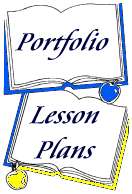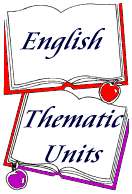![]()
|

The Classes and Their Words
- Auxiliary Verbs
- Conjunctions
- Correlative Conjunctions
- Conjunctive Adverbs
- Subordinating Conjunctions
|
Subject Case |
Object Case |
||
| First-Person | |||
| singular |
I |
me |
|
| plural |
we |
us |
|
| Second-Person | |||
| singular |
you |
||
| plural | |||
| Third-Person | |||
| singular | masculine |
he |
him |
| feminine |
she |
her |
|
| neuter |
it |
||
| plural |
they |
them |
|
| First-Person | ||
| singular | myself | |
| plural | ourselves | |
| Second-Person | ||
| singular | yourself | |
| plural | yourselves | |
| Third-Person | ||
| singular | masculine | himself |
| feminine | herself | |
| neuter | itself | |
| plural | themselves | |
| one oneself |
some someone somebody something |
any anyone anybody anything |
none no one nobody nothing |
everyone everybody everything |
another any other no other others |
| many, more, most, enough, few, less, much, either, neither, several, all, both, each | |||||
| Determiner Function | Nominal Function | ||
| First-Person | |||
| singular | my | mine | |
| plural | our | ours | |
| Second-Person | |||
| singular |
your |
yours |
|
| plural | |||
| Third-Person | |||
| singular | masculine |
his |
|
| feminine | her | hers | |
| neuter |
its |
||
| plural | their | theirs | |
|
Main Groups of Determiners |
|
|
Articles |
a/an, the Note:
the is a definite article |
|
Demonstratives |
this, these, that, those |
|
Possessives |
my, our, your, his, her, its, their |
|
Indefinites |
some, any, no, every, other, another, many, more, most, enough, few, less, much, either, neither, several, all, both, each |
|
Cardinal Numbers |
one, two, three, four...... |
|
Ordinal Numbers |
first, second, third, .....last |
|
Auxiliary Verb Forms |
|||
|
Modal Auxiliaries |
Have |
Be |
Do |
|
can |
have |
am |
do |
|
Example of Qualifiers |
||
| very | so | pretty |
| quite | just | even |
| rather | enough | a bit |
| somewhat | still | a little |
| more | almost | a (whole) lot |
| most | fairly | a good deal |
| less | really | a great deal |
| least | kind of | |
| too | sort of | |
|
Common Prepositions |
|||||
| Simple Prepositions | |||||
| about | besides | into | since | ||
| above | between | like | through | ||
| across | beyond | near | throughout | ||
| after | but (= except) | of | to | ||
| against | by | off | toward(s) | ||
| along | concerning | on | under | ||
| among | despite | onto | underneath | ||
| around | down | opposite | until (till) | ||
| as | during | out | unto | ||
| at | except | outside | up | ||
| before | for | over | upon | ||
| behind | from | past | via | ||
| below | in | pending | with | ||
| beneath | including | regarding | within | ||
| beside | inside | round | without | ||
| Phrasal Prepositions | |||||
| according to | due to | in view of | |||
| across from | except for | inside of | |||
| alongside of | for the sake of | instead of | |||
| along with | in accordance with | off of | |||
| apart from | in addition to | on account of | |||
| aside from | in back of | on behold of | |||
| away from | in case of | on top of | |||
| because of | in connection with | out of | |||
| by means of | in front of | outside of | |||
| by reason of | in place of | regardless of | |||
| by virtue of | in reference to | short of | |||
| by way of | in regard to | together with | |||
| down from | in spite of | up to | |||
| Coordinating Conjunctions | and, but, or, nor, yet, for, so | Punctuate
with a comma:
Either the teacher
is late, or we are early. |
|
| Correlative Conjunctions | both..and, either..or, neither..nor, not only..but also | ||
| Conjunctive Adverbs | |||
| Contrast, opposition | however, instead, nevertheless, on the contrary, on the other hand, still, anyway | Punctuate
with a semicolon or period. Set off the conjunctive adverb with a comma,
or with a pair of commas if it is inside its clause:
Ted spoke; however,
no one listed. |
|
| Addition | also, besides, furthermore, in addition, in fact, moreover | ||
| Cause and effect, conclusion | accordingly, as a result, consequently, hence, so, therefore, this | ||
| Example, restatement | for example, for instance, namely, that is | ||
| Comparison | as..as, more than, less than, than | ||
|
Interrogatives |
|
who, whom, whose, which, what, where, why, when, how |
|
Relatives |
|
| Pronominal relatives | who, whom, whose, which, that |
| Adverbial relatives | where, whey, why |




